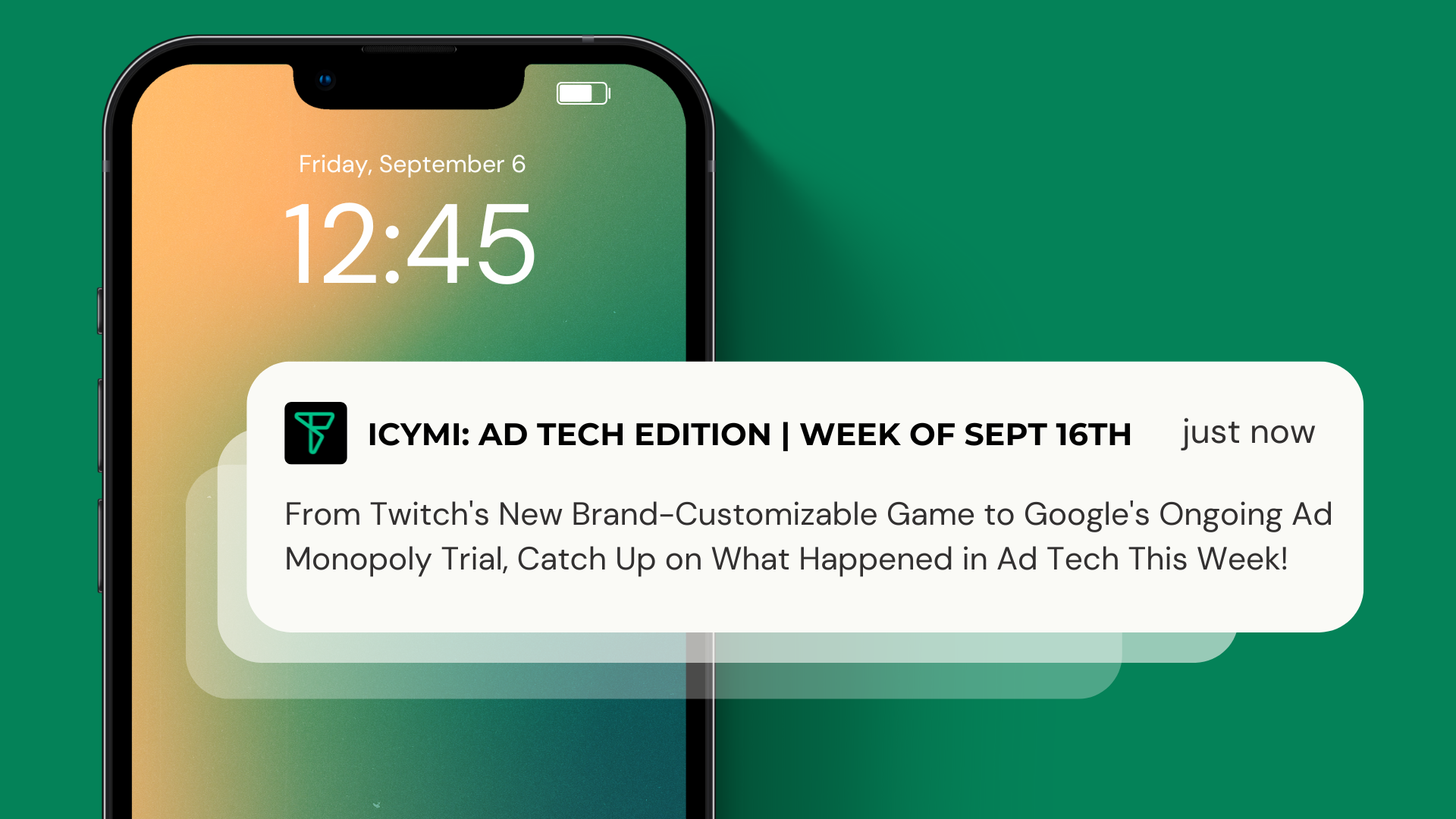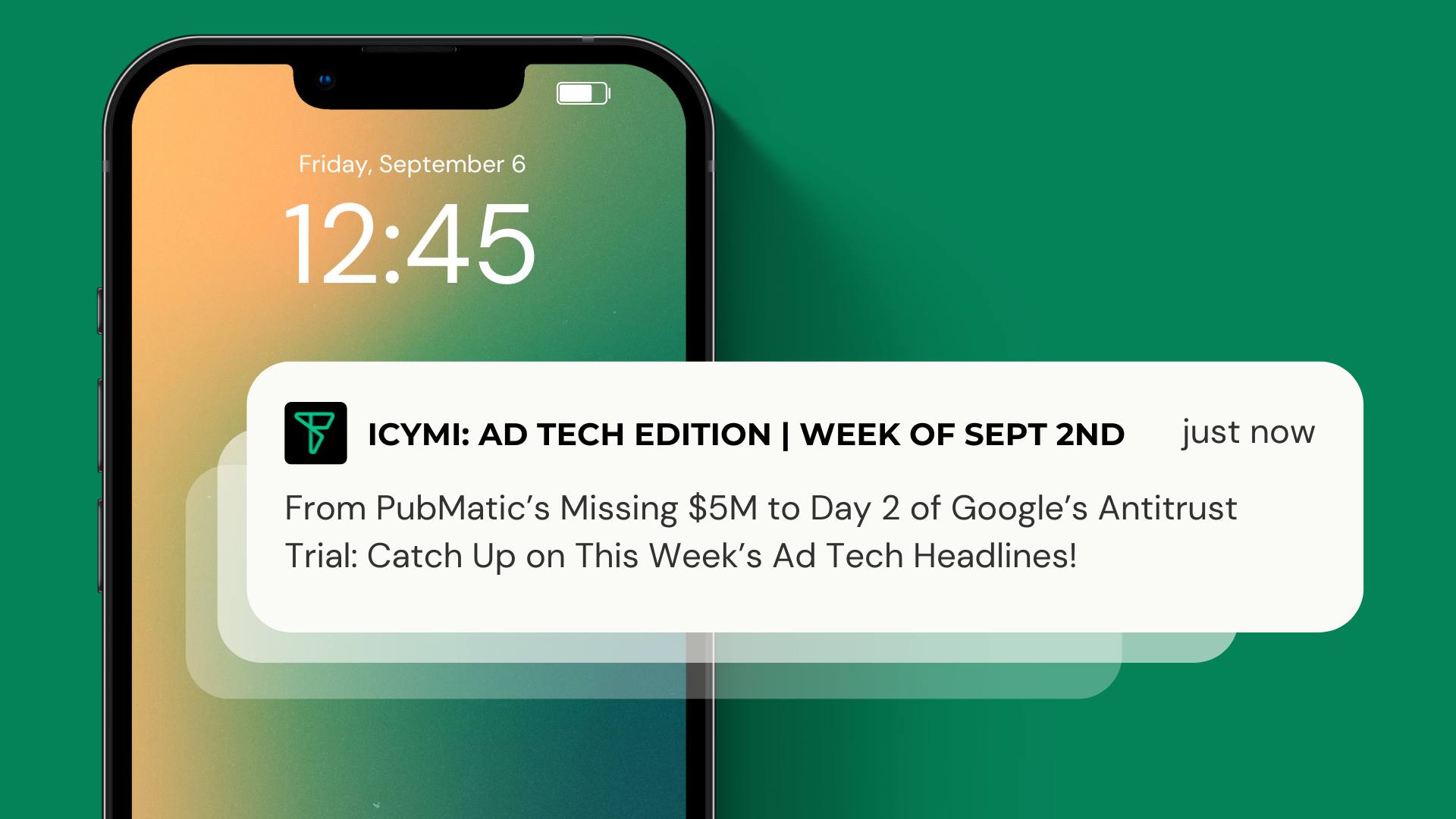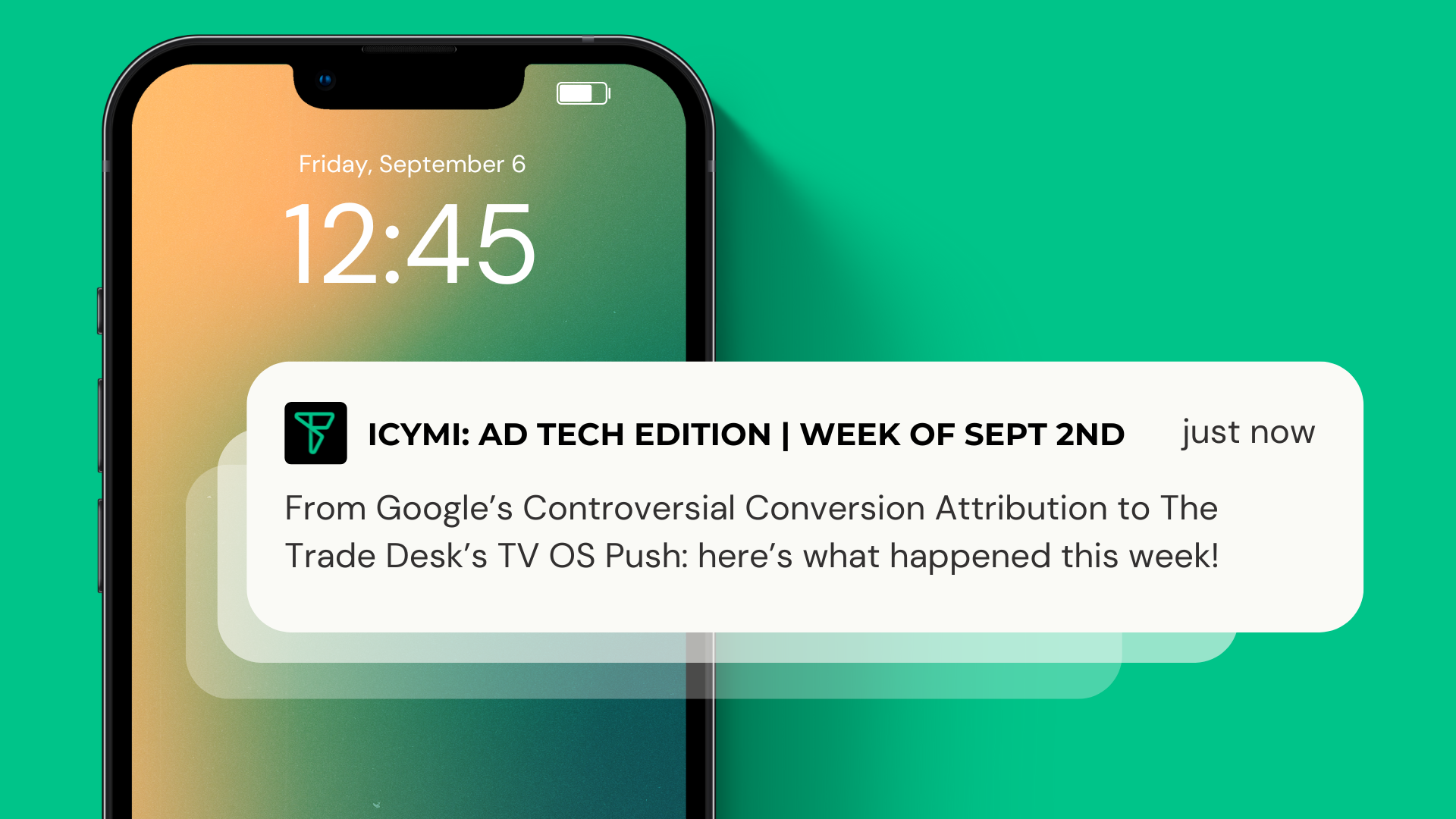Bits and Bobs from around the industry:
- Signs of Optimism Shine Through the Bleak Ad Market
- DoubleVerify Extends Leadership in Independent AI Powered Campaign Optimization Solutions with Agreement to Acquire Scibids
- Retargeter Who? Criteo’s All Commerce Now; Trying to be YouTubeTok
- Former Employees Remain Uncompensated After MediaMath’s Bankruptcy Filing
Signs of Optimism Shine Through the Bleak Ad Market | Axios
After a year of slow growth in the advertising market, analysts are optimistic that the situation is improving. The ad market slowdown had significant consequences, including a sell-off across media, entertainment, and technology sectors, resulting in layoffs and cost-cutting measures in 2022 and early 2023. Analysts believe that advertising growth will pick up in the second half of the year, backed by positive economic data. Consumer spending has slowed to +1.6%, but business investment spending has increased to +7.7%, which historically indicates increased ad spending.
Top advertising analysts suggest that the slowdown in the ad market was expected, considering the unsustainable double-digit growth levels seen in 2021 and early 2022. Record levels of inflation after the pandemic contributed to strong ad growth, with companies like Unilever increasing their marketing spend to cope with inflation-related price hikes. Despite the recovery, not all companies are experiencing the same level of improvement. Meta issued strong guidance for ad growth, but Snap’s stock plummeted due to weak forecasts.
During economic uncertainty, companies tend to allocate more of their marketing budgets to performance advertising, affecting premium publishers reliant on brand advertising. For instance, Roku’s brand advertising business faced pressure in sectors like technology, media, and entertainment. Sectors heavily dependent on advertising revenue have been pulling back compared to early last year. Many tech firms are becoming more efficient after heavy spending in 2021, and the ongoing Hollywood strikes are impacting ad spending within the media sector.
In summary, the ad market is showing signs of improvement after a slow year, with optimistic outlooks for the second half of 2023. However, not all companies are experiencing the same level of recovery, and adjustments in advertising strategies are being made in response to economic conditions.
DoubleVerify Extends Leadership in Independent AI Powered Campaign Optimization Solutions with Agreement to Acquire Scibids | BusinessWire
DoubleVerify (DV), a software platform for digital media measurement and analytics, has announced its agreement to acquire Scibids Technology SAS (Scibids), a global leader in AI-powered digital campaign optimization. The acquisition is valued at $125 million in a cash and stock transaction, with potential additional consideration based on performance metrics. The deal is expected to close in the third quarter.
By acquiring Scibids, DV aims to expand its product leadership in real-time campaign optimizations. This joint offering will combine DV’s trusted media quality and performance data, including viewability, contextual, and attention signals, with Scibids’s AI technology and real-time optimization algorithms. The goal is to provide advertisers with real-time campaign optimization without relying on third-party cookies, leading to tangible business outcomes aligned with advertiser goals.
Scibids specializes in building AI technology that automates and optimizes advertisers’ programmatic buying of digital ad campaigns. The AI generates custom bidding algorithms based on the advertiser’s key performance indicators (KPIs) and desired outcomes, leveraging DSP impression level data, first-party data, and measurement data from brands or agencies. The acquisition is expected to benefit advertisers by maximizing business outcomes and return on investment across all programmatically bought paid media. It will streamline manual efforts through automated bidding across leading DSPs, such as Google’s DV360, The Trade Desk, and Xandr. DV’s recent partnership with Scibids, along with the launch of the DV Algorithmic Optimizer, demonstrated significant increases in attention levels and impressions won in campaign tests with Fortune 500 brands.
DoubleVerify has over a decade of experience in building transparency and trust in the advertising ecosystem, and the acquisition will further enhance its ability to deliver real-time campaign optimizations leveraging its media quality and performance data. The transaction will involve a cash and stock payment of $125 million, subject to adjustments, with potential additional consideration based on performance milestones. Scibids was advised by LUMA Partners. The acquisition details will be discussed further when DV reports its second-quarter 2023 results. DoubleVerify’s mission is to strengthen, secure, and make the digital advertising ecosystem safer, while Scibids aims to help brands achieve business outcomes through privacy-respecting practices.
Overall, this acquisition is expected to enhance DV’s offerings, combining the strengths of both platforms to offer advertisers trusted data and AI technology for maximizing their digital advertising investments.
Retargeter Who? Criteo’s All Commerce Now; Trying to be YouTubeTok | AdExchanger
Criteo, a digital advertising company, reported earnings with revenue declining to $469 million from $495 million in Q2 2022. However, the company improved profitability after a challenging period. Criteo is focusing on commerce media, especially its machine learning-based ad-buying product called Commerce Max (CMax), similar to Google’s Performance Max. Criteo hopes to benefit from its early involvement in the Chrome Privacy Sandbox to stand out in addressability.
YouTube is enhancing its Shorts feature, similar to TikTok videos, by introducing features like Duet (called Collab), vertical video repurposing, and live video previews. They aim to attract more influencers from TikTok and grow their audience.
There is a surge in generative AI or “large language model” machine learning startups offering various services, but there are concerns about potential price increases for data consumption as cloud companies and VC investors invest less in this category. Marketers and merchants are testing generative AI technologies like chatbots and dynamic creatives, which might lead to increased licensing costs for AI products like ChatGPT backed by companies like Amazon and Google.
Former Employees Remain Uncompensated After MediaMath’s Bankruptcy Filing | Digiday
John (pseudonym) had a challenging month, starting when he unexpectedly lost his job at MediaMath, where the company’s financial troubles were rumored for a while. Shortly after the company filed for bankruptcy, John and around 300 other employees were informed of their job loss. Fortunately, he managed to find a new role this month, but he remains troubled and frustrated as he is owed a significant amount of money in total remuneration by MediaMath. He doubts whether he will ever receive the full amount owed to him, and he is not alone in his frustrations, as the industry often avoids accountability for the consequences of their actions.





